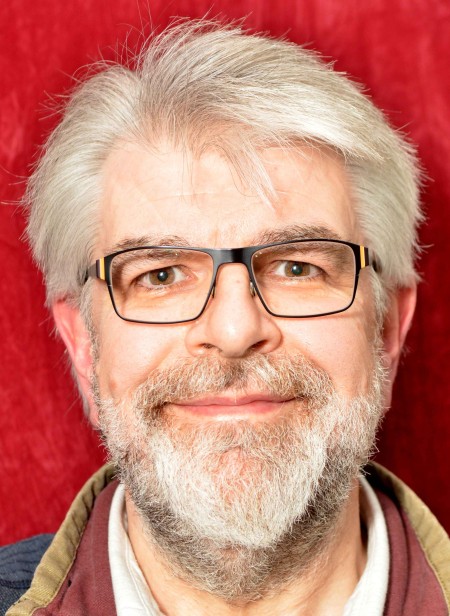Patients in Cheshire and Merseyside have become the first in Europe to be offered pioneering robotic-assisted surgery for head and neck cancers with Intuitive’s da Vinci Single Port (SP) surgical system, as Liverpool University Hospitals NHS Foundation Trust (LUHFT) becomes the first NHS trust in the UK to receive the da Vinci SP.
The arrival of the da Vinci SP has only been made possible thanks to the generous donation of £1 million from the Marina Dalglish Appeal (MDA). The MDA was set up by the Dalglish family in 2005 to support other cancer patients after Marina Dalglish was successfully treated for breast cancer at Aintree in 2003. The donation was match funded by the Trust.

LUHFT is the first centre in Europe to be using the da Vinci SP for head and neck (transoral) procedures. With a magnified high-definition view and use of fine instruments for greater precision, surgeons at Aintree University Hospital are now able to remove tumours of the throat that previously would not have been accessible through the mouth.
This is thanks to the da Vinci SP’s single access port (the arm), which enables surgeons to access tumours through a single incision or natural orifice, such as through the mouth, with surgical instruments that can then work more easily in the tight space of the throat and airway.
In some cases where tumours were unable to be removed through the mouth, patients would have needed big operations to split their jaw to reach the cancer. This causes a lot of pain, a complicated hospital stay for up to two or three weeks with feeding tubes, and usually requires a tracheostomy tube for a period to ensure patients can breathe safely.
Being able to safely remove more tumours through the mouth results in better outcomes for patients, whether that be through significantly reduced lengths of stay of one to three days, no feeding or tracheostomy tubes, or even the potential to reduce the need for post-operative chemotherapy.

Aintree University Hospital is home to a specialty head and neck cancer service, providing care for patients in Cheshire and Merseyside. It forms part of the Liverpool Head and Neck Centre (LHNC), a collaborative between LUHFT, Clatterbridge Cancer Centre NHS Foundation Trust, The Walton Centre NHS Foundation Trust and University of Liverpool, drawing together a world-class programme of clinicians and researchers with the sole aim of improving outcomes for head and neck cancer patients in the UK and beyond.
Mr Jason Fleming, Consultant Head and Neck Surgeon at LUHFT, was the first NHS consultant to operate the surgical system at Aintree. He said: “This generous donation from the Marina Dalglish Appeal means that we are able to support more patients with head and neck cancers in Cheshire and Merseyside to receive timely treatment and better outcomes.
“Tumours of the throat (tonsils and back of tongue) are rising globally, but especially in North West England, with smoking and human papillomavirus (HPV) exposure as major causes. The Liverpool Head and Neck Centre has a long record of pioneering minimally invasive surgery, but now with the addition of the da Vinci SP, we will be able to offer the latest technology to a region with the greatest need.”
The da Vinci SP becomes LUHFT’s fourth robotic-assisted surgical system, with the capability to offer surgery across specialties with both multi-port and single-port devices.
Dr Peter Turkington, Executive Managing Director at Aintree University Hospital, said: “On behalf of the Trust I’d like to extend our sincere thanks to the Marina Dalglish Appeal for their generous donation. The addition of Intuitive’s da Vinci Single Port surgical system to Aintree means that we will continue to provide the highest quality of care available for our region’s head and neck cancer patients at the Liverpool Head and Neck Centre, and continue to grow LUHFT’s ever expanding robotic-assisted surgery programme, giving our patients the best outcomes possible.”
David Marante, Vice President of Intuitive UK and Ireland, makers of the da Vinci SP, said: “At Intuitive, we remain dedicated to offering surgeons, care teams and hospitals new approaches for minimally invasive procedures to help them drive better outcomes for their patients.
“We believe that da Vinci Single Port offers the potential to expand access to robotic-assisted surgery to more patients. We look forward to supporting Liverpool University Hospitals to advance their da Vinci robotic-assisted surgical program as they enter a new era of minimally invasive surgery for patients.”
David’s story

David, who lives in Frodsham, said: “I wasn’t in any discomfort, but just had an unusual feeling which didn’t feel quite right. After tests at the Countess I was diagnosed with throat cancer at the base of my tongue, and referred to the Liverpool Head and Neck Centre.
“At first appointment in March with Mr Fleming, he told me about this new robot and that I’d be one of the first patients to have surgery with it. If it helps more patients like me to be seen and treated quickly, with fewer side effects and a faster recovery, it can only be a good thing.
“I’d urge anyone who is unsure about their symptoms or if you feel that something isn’t as it should be, to go and get it checked out. Acting on your concerns may be the best chance of an early diagnosis.”
Watch the full report from ITV Granada Reports below: